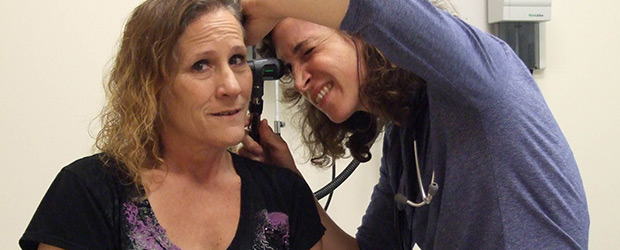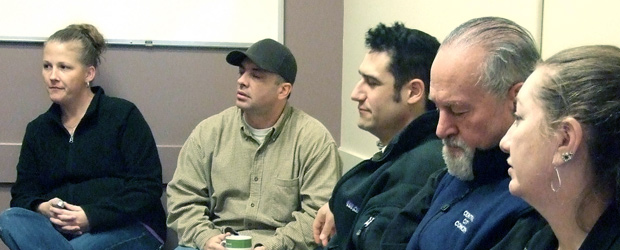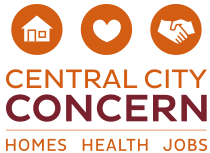
June 2, 2017 |
Organization Highlight: Central City Concern
Central City Concern (CCC) serves thousands of Portland residents a year, and delivers strong solutions to end homelessness through integrated care that includes not only housing, but employment services & access to integrated primary and behavioral health care.

Originally founded in 1979 to address downtown Portland, Oregon’s growing problem with individuals with alcohol and other drug use disorders on the street and living in single room occupancy buildings,Central City Concern is 501(c)(3) nonprofit that has evolved into a powerhouse for homeless services that sets the golden standard in comprehensive integrated care.
Central City Concern provides some of the most integrated care available to treat individuals seeking recovery from substance use disorders. The recovery housing pairs peer mentors and integrated treatment with primary health care and supported employment services.
Central City Concern’s (CCCs) initial work involved alcohol recovery treatment as well as affordable housing management and rehabilitation. Early on, it was clear to CCC leaders that safe housing was of paramount importance to those in recovery and to the neighborhood at large. In the 1980s, “recovery” extended to those addicted to crack cocaine and heroin, and CCC adapted its programs.
The agency increased its portfolio of affordable housing units and began offering alcohol and drug free housing to support those in recovery as well as their families. CCC now offers “housing choice” that gives people an opportunity to meet their individual needs through either housing first or recovery housing. To further support clients’ transformations to full self-sufficiency, CCC added employment training and work opportunity program in the early 1990s.

In 2016, served 8,324 health patients, housed 3,510 residents (including 247 children) and provided employment services to 956 job seekers. CCC has 13 Federally Qualified Health Center sites where 86 percent of our patient are on Medicaid or Medicare. There were 21,642 visits for general medicine services, 64.665 visits for substance use disorder services and 50,628 visits for mental health services. Today, 49% of CCC’s workforce, from Directors of large programs to staff working on the front lines identify as “in recovery.” This creates a unique culture which is extremely supportive for those choosing to exit the streets and shelters through detox and treatment.
“Addiction is a chronic disease that requires integrated, individualized care for recovery. We’ve learned over nearly 40 years that addiction can impact anyone, but recovery is possible for everyone. For those exiting homelessness and incarceration, supported recovery housing and employment services ensure optimal opportunities for lasting recovery.”
-Rachel Post, Central City Concern Public Policy Director
Central City Concern is funded through contract and government funding, health and chemical dependency services, donations and grants, rental income and social enterprises.
In 2016, Central City Concern announced a $69 million plan to build a new comprehensive primary care and behavioral health clinic and 382 new very low income apartments designed to serve the most vulnerable members of the Portland community in a critical area. Many of the units will be operated as recovery oriented for those choosing to address their substance use disorders. A consortium of health care organizations and public partners came together in an unprecedented investment of launch funding, as well as a commitment to helping end homelessness. Construction of this project is scheduled to begin in summer 2017.
Some of the most powerful forces in recovery are relationships with those who are successful in their own recovery. These individuals can offer a hand in guiding them through their early engagement and recovery work.
-Rachel Post

Learn more about Central City Concern on their website or on Twitter @CCCPortland

